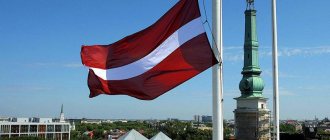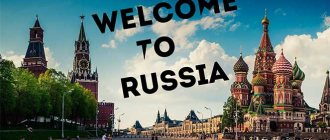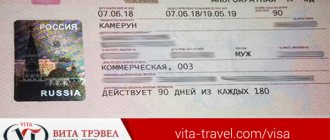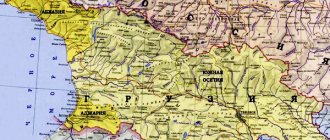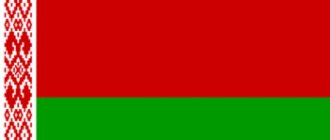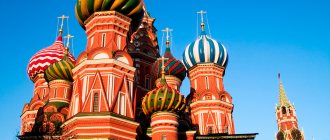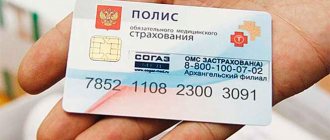Russian education is traditionally considered prestigious and of high quality. Doctor, economist, manager, engineer - more than 200 thousand students from abroad come to Russia every year for these (and many other) professions. This justifies the relevance of the material in which we will try to figure out how a foreigner can enter a Russian university.
Russian education for foreigners
The Russian Federation, as a multinational country, is traditionally open to foreign citizens. And the educational sector is no exception.
Children of Ukrainians, Uzbeks, Belarusians and representatives of other countries can come to study in kindergartens and schools in the Russian Federation without any problems. The only condition is the legality of the family’s stay on the territory of the state: issued permits (TRP, residence permit), current registration.
Enrolling in universities is also an achievable task. At the legislative level, a system for admitting foreign students has been developed. In addition, the government annually allocates quotas for free education, which also increases the chances of foreign graduates becoming Russian students.
Here we’ll talk about more specific issues: what requirements need to be met and what to do to come to study at a Russian university.
Features of quota admission
Russians living abroad and certain categories of foreign citizens have the right to apply for budget-funded places in Russian higher educational institutions. They are given the opportunity to participate in a separate entrance competition on an equal basis with Russian citizens living in the Russian Federation. To be on the list of those enrolled in the free department, a foreign applicant must pass a selection process, which involves passing one of the following tests:
- passing the Unified State Exam;
- passing university entrance exams.
The number of budget places is approved annually by the Government of the Russian Federation. However, admission under this quota does not mean that the state and educational institution will bear all the costs of foreign students. They really won’t need to pay for the training program and hostel, and the scholarship will be awarded only based on the results of the session. If there are no debts, grades “4” and “5”, then incentive payments will continue, otherwise students will have to wait at least until the next semester.
The state and the university do not pay state-funded students for health insurance, travel to the place of study and residence, and other expenses.
>> How easy is it to enroll on a budget at any Russian university?
In order for a foreigner to obtain the status of a state-funded student at a Russian university, he will have to go through two selection stages. The first is distribution through Russian embassies in other countries, and the second is passing exams.
It is important to remember that an invitation can be received at 6 universities, but applicants from abroad still need to carefully analyze all admission options in order to choose the highest priority ones.
For whom are Russian universities open?
Almost any foreign citizen who has completed secondary education and knows the Russian language at the required level has the right to apply for a place in an educational institution in Russia. Solving the question of how a foreigner can enroll in a Russian university for paid education is much easier than in the case of budget places. You can study on a commercial basis at any university in any specialty.
To get an education for free, you must go through a competitive selection process: submit documents for a quota, pass the Unified State Exam.
Exchange programs, scholarships, and grants are also good options. In any case, you need to confirm your level of knowledge and motivation.
The following categories of foreigners can apply for budget places on an equal basis with Russian citizens:
- citizens of Azerbaijan, Kyrgyzstan, Ukraine, Turkmenistan, Armenia, Belarus, Kazakhstan, Uzbekistan, Moldova, Tajikistan, who at the time of admission to the university are permanently residing in Russia (1992 Agreement);
- Georgians permanently residing in the Russian Federation (1994 Agreement);
- Kazakhs, Belarusians, Tajiks, Kyrgyz who came from their countries;
- participants of the State Program for the Resettlement of Russians from Abroad,
- compatriots living abroad.
Conditions to be met
Is it possible for a foreigner to enter a Russian university? We found out that it is possible. Now it’s worth talking about the requirements that are put forward to applicants from abroad.
The main conditions are:
- full education at the previous level - when entering the bachelor’s qualification level, this will be a school certificate; if a foreigner is applying for a place in a master’s program, a bachelor’s diploma is needed, and, of course, they will not be admitted to graduate school without obtaining a specialist qualification (master’s);
- knowledge of the Russian language at the level required for training - classes are conducted in the national language, there are no exceptions for foreigners, so knowledge of the language is also important, because otherwise it is impossible to get a truly high-quality education;
- availability of valid permits, on the basis of which the foreign student resides in Russia.
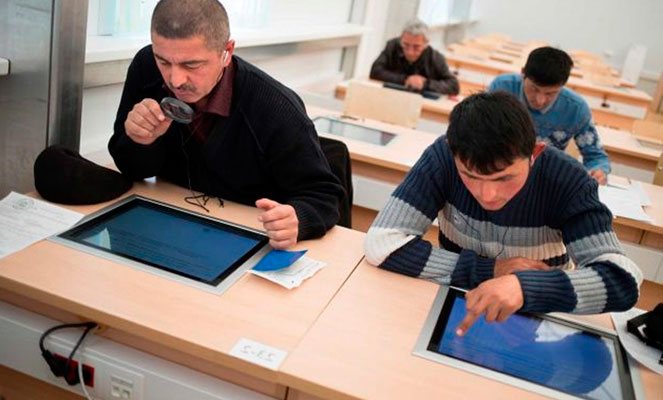
Admission requirements and possible forms of training
In Russia, there are two general requirements for foreign applicants: completed secondary education and sufficient knowledge of the Russian language
Foreigners can study in the Russian Federation both for a fee and for free: according to a quota or within the framework of international treaties. Quotas for budget places for foreign students are allocated annually by the Russian government. In 2021 this is 18,000 places. Citizens of all countries can apply for them.
International treaties allow citizens of individual states to qualify for free education on an equal basis with Russians outside quotas. We are talking about countries such as:
- Belarus, Kyrgyzstan, Kazakhstan, Tajikistan;
- Armenia, Uzbekistan, Ukraine, Georgia, Moldova, Turkmenistan (if you have a Russian residence permit).
To get into a budget-funded place, applicants must go through a competitive selection process, win it and submit documents. Those who did not have enough points for admission to the budget, but passed the exams satisfactorily, can study on a commercial basis.
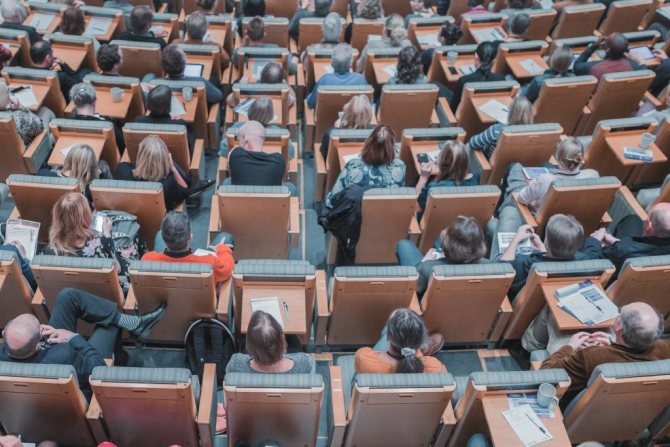
PHOTO: unsplash.com
Preparation for admission
A special place in the education system of foreigners in Russia is occupied by preparation for admission.
Organized preparatory courses by RUDN for foreigners, as well as other universities in Russia where there is such a department, focus their activities on studying Russian speech, traditions, customs, as well as on learning the basics of specialized subjects and their terminology.
It is noteworthy that studying at the preparatory faculty ends with testing, according to the results of which the foreign applicant either continues to study the specialty or goes home. An important nuance: after the “language” department, a foreigner does not necessarily remain at the university where he studied Russian. Therefore, you can save money here if you study the language, for example, in the regions (where it is cheaper), and then move to the capital.
Russian language for foreign applicants
By the way, the preparatory department of a university is not the only place where you can improve your language skills.
A foreign applicant can learn Russian:
- at accelerated linguistic courses or at a summer school at a university,
- in a private specialized language school;
- remotely through online courses.
It is important to remember that admission of a foreigner to a university with a minimum level of proficiency in the Russian language is possible, although the degree of mastery of communication skills is checked by special testing at the university.
A foreigner’s path to a capital university
For a foreign citizen who is thinking about how to enter a Moscow university, the algorithm of actions consists of several stages:
- choose a program and university;
- find out individual opportunities for admission (can you apply for a free place, are there agreements between countries on cooperation in the field of education, etc.);
- collect documents, certify them in the proper order and submit an application;
- pass a competitive selection;
- enroll and prepare to move (and the like).
Since it is more difficult for a foreigner to enroll in a Russian university than for Russian citizens, the admissions committees of the educational institutions themselves, employees of embassies and consulates of the Russian Federation in their native countries, and representatives of Russian government organizations (such as, for example, Rossotrudnichestvo) will help resolve problematic issues.
Algorithm for admission of a foreign applicant to a Russian university
The path of a foreign student to a Russian university begins with the choice of a specialty and educational institution.
Next, opportunities for financing training are determined. If the student (or his parents) completes the tuition fee, then you can collect documents and submit directly to the chosen university. By the way, sponsors (organizations interested in specialists of a certain qualification) as well as grant givers can be involved in paying for the contract.
If an applicant is applying for free training, he must submit the collected package of documents to the Rossotrudnichestvo representative office in his country to pass the competition. In this case, participation in olympiads and competitions in the chosen profile will be bonuses.
After submitting the documents, you must pass competitive tests: the Unified State Exam (for those who can apply for budget places) or internal exams at the university itself during the entrance campaign. Those who successfully complete the tests receive confirmation of enrollment and an invitation, on the basis of which they can already apply for a study visa.
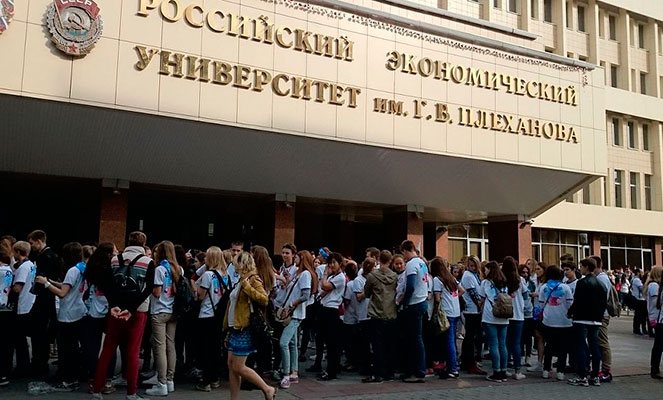
Invitations and visa – grounds for entry into the country
A foreign applicant needs documentary evidence to enter the territory of the Russian Federation. For countries with a visa regime for crossing the border, this is a visa; it is issued on the basis of an invitation sent by the university or the Ministry of Foreign Affairs of the Russian Federation.
On our website, read more information about how to obtain a study visa to Russia for foreigners.
By the way, you can come and take exams on a tourist visa.
For those who do not need a visa, an invitation is considered the basis for entry. However, it should be kept in mind that you can only stay in Russia in a “visa-free” regime for 3 months, that is, if enrolled, a Ukrainian or Tajik will still have to obtain a residence permit.
Package of papers for admission
When applying to a Russian university, a foreign applicant needs to prepare the following package of documents:
- application and questionnaire;
- identification;
- education document;
- medical certificate;
- photo.
The full list of documents should be clarified directly with the admissions committee of the educational institution. It is important to remember the need to translate foreign certificates into Russian and have copies certified by a notary.
Upon arrival in Russia, it is important to register at your place of stay.
Registration with migration authorities
All foreign students, regardless of citizenship, must register with migration authorities. These issues are usually dealt with by international departments of universities.
Read more about all the nuances of the migration registration procedure.
All the student needs to do is bring their documents there:
- passport (photocopies of all pages);
- migration card - copy.
It is important to remember that when filling out the card, “Study” must be indicated in the “Purpose of Entry” column.
Primary migration registration is issued for 3 months. Two to three weeks before the expiration date of registration, you must contact the international department of the university again to renew it.
Entering Russian universities has become five times easier: what is super service for foreigners?
Every year, Russian universities conduct a competitive selection for free education according to the quota of the Russian government among foreign applicants. However, this time the admissions campaign has changed a lot - for the first time, foreigners who want to study in Russia can go through the entire selection procedure online by registering with a special educational super service.
The admission campaign started on January 20 and will end only on February 20. Rossotrudnichestvo recorded a large flow of applications from applicants from a variety of countries. Sputnik looked into what superservice is and how it makes admission easier for students from the CIS.
What does super service provide?
Superservice is an online platform through which foreign applicants can apply for admission to any university in Russia. As Pavel Shevtsov, deputy head of the Rossotrudnichestvo agency, explained in an interview with Sputnik, this mechanism operates on the principle of a single window.
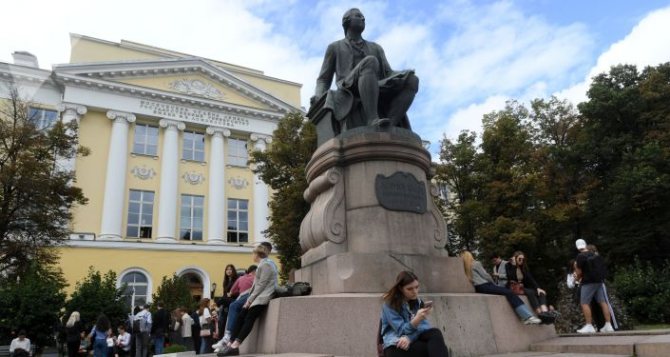
© photo: Sputnik / Kirill Kalinnikov
Georgian youth will be able to get free education in Russia
“This is a unified system for accepting foreign citizens. This year it is in trial operation, and by the end of the year it will be fully launched,” the official said.
Now, thanks to the super service, you can submit all the documents to participate in the program without leaving your home; you just need to register on the website. However, soon the service will provide complete information about all Russian cities and their infrastructure. The service will also publish job advertisements for foreigners in their specialty. Students who want to earn extra money will have the opportunity to find specialized employment.
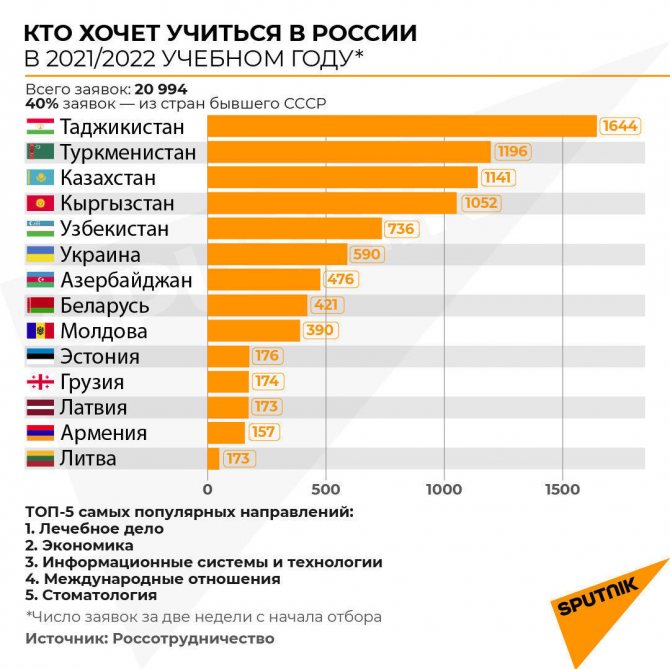
© Sputnik
Who wants to study in Russia
At the moment, the super service is available in two languages – Russian and English. But the developers plan to add others so that potential foreign applicants can receive all the necessary information about universities and living and studying conditions in Russia in their native languages.
We reduce costs, solve problems
The main problem that many foreign students face is the intricacies of migration policy. After all, each country has its own rules: some need a visa, while others only need to register for migration, but it is important to do this within a strictly defined period of time. You can also get advice on all these issues in advance at the super service.
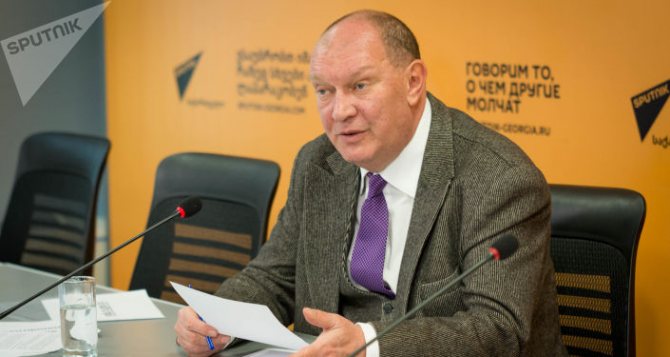
© Sputnik / Vladimir Umikashvili
How to get education for free in Russia? Opportunities and deadlines for Georgian youth
The launch of the online platform reduces many barriers that sometimes arose in front of talented youth in the past, notes the press service of Rossotrudnichestvo. Previously, in order to qualify for a Russian university, you had to come to the intermediate stages of the competition at least 5 times. However, not all applicants live in cities where Rossotrudnichestvo branches are located; some live in rural areas, which means each trip requires financial expenses. Now you can submit documents, take tests and have a video interview even from your mobile phone by installing the application.
However, not all potential students are comfortable with the online format, especially if there are no conditions at home to take the test or there are problems with access to the Internet. “But there is no need to worry, we will leave the option of passing the selection in person, we will definitely vary everything,” says Pavel Shevtsov. “It’s important to feel comfortable going through the selection process.”
Pros of the pandemic
In just two weeks, the super service received more than 20 thousand applications. Almost 40% of them are from neighboring countries.
“The demand for Russian education in the CIS countries has always been consistently high, but this time we are seeing an increase also due to the pandemic conditions that have developed around the world,” says Pavel Shevtsov. – Students note that Russia is managing to successfully overcome the pandemic (coronavirus figures indicate this) and organize the educational process. Therefore, interest in studying in Russia has increased, but it is too early to give specific figures, since the selection process is still underway.”
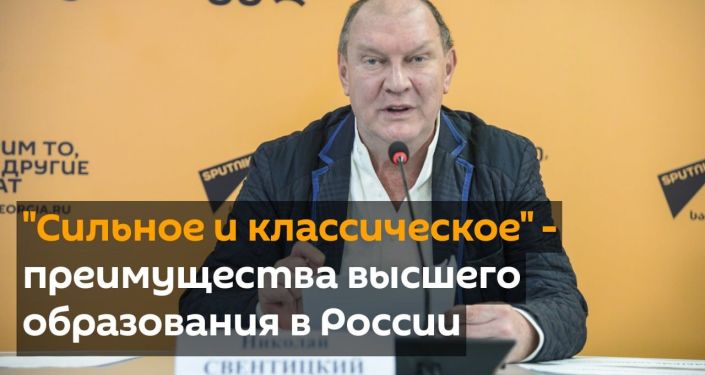
© Sputnik / Alex Shlamov
“Strong and classic” - the advantages of higher education in Russia - video
Popular areas for international students are related to medicine. According to statistics provided by the Rossotrudnichestvo agency to the Sputnik agency, the TOP 5 most popular areas of superservice included general medicine and dentistry.
By the way, many participants in the online selection are students who have already studied or are studying at Russian universities and want to continue their education in Russia. 13% of the total number of applications, for example, are master's programs. One of the participants in the selection in this category is Danil Nikulenko from Georgia. Now Daniil is finishing his bachelor’s program at RUDN University - and wants to enroll in the master’s program in the same specialty at the same university.
“I decided to continue studying in Russia because I like the teaching system and I have many friends here,” he says. “So I registered with the super service and submitted documents in early February. It’s convenient: I quickly found the site, it’s easy to apply, all contacts are listed if you need to get information. I hope to pass the selection and continue to study at the Faculty of International Relations.”
Moscow universities for foreigners
Capital universities are traditionally in demand among foreign applicants. Prestige and prospects are the main advantages for which every fourth student comes from abroad. The algorithm of actions by which foreigners are admitted to GITIS, Moscow State University or RUDN University is similar to those of regional universities. The only difference is the price: the closer to the center, the more expensive.
Read more about choosing an educational institution in Moscow for foreigners.
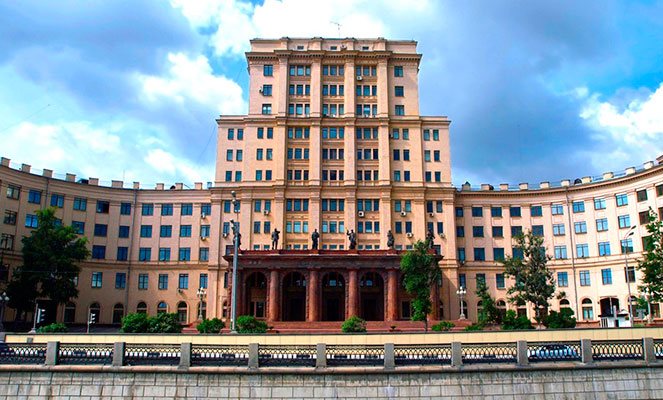
First stage of quota admission
Many foreign applicants ask questions about how to begin applying to a Russian university under a budget quota? The algorithm of actions presented below will help you answer them in detail:
- Careful study of information on the admission of foreign applicants.
- Clarification of the availability of budget places, their number and areas of study for which they are available.
- Submission of documents to Rossotrudnichestvo in person, through the official website of the department or the Russian Embassy.
The required package of documents for foreign applicants includes:
- application for participation in the qualifying competition;
- a copy of the education document, which must indicate all subjects and grades;
- a certificate from the school about studying in the graduating class, if the applicant is still a school student;
- a copy of a medical report confirming the absence of contraindications to studying in the Russian Federation;
- certificate of absence of HIV/AIDS;
- a copy of the foreign passport with which the applicant will enter Russia (the document is valid for at least 18 months from the date the visa is valid);
- birth certificate (copy);
- a certified copy of certificates, diplomas and other certificates of victories in national and international Olympiads and competitions;
- a copy of the document that confirms the level of preparation of the applicant for training in specialties in the field of art and culture.
>> 5 university faculties that require the Unified State Exam in biology
All necessary background information can be obtained from the Russian Embassy.
An important point: when analyzing options for admission, you need to take into account some restrictions related to the number of applications to Russian universities from foreign applicants. For example, in Moscow and St. Petersburg you can choose a maximum of 2 educational institutions for admission, in one federal district - up to 3, etc.
Universities of the northern capital
The universities of northern Palmyra are no less popular among foreigners. The city is closer to Europe, with its own local flavor; here, compared to Moscow, prices for accommodation and education are lower. All this makes admission to universities in St. Petersburg for Ukrainians, as well as for Kazakhs, Belarusians, Tajiks, Uzbeks and representatives of other countries, extremely promising and attractive.
In St. Petersburg, most foreigners study at St. Petersburg State University, PGUPS, I, Peter the Great St. Petersburg Polytechnic University, Mining University.
Education for foreigners in Russia
Recently, the flow of migrants to Russia continues to increase, and therefore the Russian government provides for the availability of education, including for foreign citizens. Migrants have the right to enroll in schools, colleges, and universities on the same basis as Russian citizens. There are also educational institutions that position themselves as institutions for training foreigners (for example, RUDN University). At the same time, language training courses are organized for foreign applicants, study quotas are provided, and grants and scholarships are allocated. Citizens of the CIS are especially welcome in our country in accordance with signed international agreements. The best students, based on a quota, have the right to receive free education in Russia.
Peculiarities of admission to Russian universities for citizens from the CIS
Citizens of the former Soviet Union (and now CIS countries) are traditionally the largest group of applicants to Russian universities. This has its own characteristics, which are regulated by international agreements.
Thus, when deciding, for example, the question of how a citizen of Uzbekistan can enter a Russian university, one should remember the Agreement on Cooperation in the Field of Education signed in Tashkent in 1992. According to the document, Uzbeks can apply for budget-funded places on an equal basis with Russians if they permanently reside on the territory of the Russian Federation.
In addition, the same right is enjoyed by:
- Azerbaijanis,
- Armenians,
- Belarusians,
- Kazakhs,
- Kyrgyz,
- Moldovans,
- Tajiks,
- Turkmens,
- Ukrainians.
Another international agreement allows citizens of Kazakhstan, Belarus, Kyrgyzstan and Tajikistan to take entrance exams to Russian universities on the same basis as local applicants, regardless of their country of residence. Citizens of the named states can apply for a general competition, which significantly increases the chances of becoming a student at the chosen university.
Admission to Russian universities for Kazakhs, Kyrgyz and Tajiks proceeds similarly to the described algorithm of actions. Therefore, from the material one can draw general conclusions regarding, for example, how a citizen of Kazakhstan can pass the Unified State Exam in the Russian Federation or what documents a Kyrgyz citizen applying for a Russian diploma should prepare.
How can a foreigner get a budget place at a Russian university?

In 2021, funds were allocated from the federal budget of the Russian Federation for foreign students for 15,000 budget places in Russian universities (they are also called quotas). Mikhail Lanzman will tell you what resources you need to use and what algorithm to follow if you are a foreign applicant and want to get a higher education in Russia.
Mela newsletter
We send our interesting and very useful newsletter twice a week: on Tuesday and Friday
For several years now, Russian universities have been trying to attract as many foreign students as possible into their ranks. This is due to the fact that domestic higher education faces very specific tasks: our universities must employ at least 10% of foreign teachers and attract at least 15% of foreign students.
You probably know that there is a government program, an ambitious project called “5-100”. The main goal of the program is to get into the top 100 of prestigious international university rankings by 2021 (hence the name). It turns out that at least five Russian universities should be included in the top 100 universities in the world in the near future. The successful implementation of joint educational programs with other foreign universities and the attraction of foreign students is one of the components of the state program.
Here are step-by-step instructions for foreign applicants on how to get a budget place at one of the Russian universities within the framework of special quotas.
In 2021, St. Petersburg State University was recognized as the most popular university among foreign students. This year there was a record number of applications to this particular university - 4,200, St. Petersburg State University overtook even RUDN (RUDN University - 3,378 applications). In third place is Kazan (Volga Region) Federal University - 2194 applications.
In total, in 2021, foreign applicants submitted 88,906 applications for admission to Russian universities. The most popular specialty is “General Medicine” (4854 applications).
Step 1. Find your dream university and study program in Russia
Every foreign applicant has the right to try to enroll (submit documents for admission) to six Russian universities at the same time. Great, isn't it? How to understand the huge number of programs offering higher education in Russia? To do this, you need to properly organize your search. And here the website russia.study will help you.
This resource is simply an indispensable assistant for a foreign applicant. Here you can use a convenient search system and select the desired university and study programs, receive detailed instructions on submitting documents, learn about state scholarships, health insurance, obtaining a study visa and registration, employment opportunities and much more.
By the way, if you cannot decide on your own which program you need to enroll in, you can always write to [email protected]
, and resource staff will help you with your choice.
Step 2. Confirmation of a document confirming completion of secondary general education obtained outside of Russia
This is very easy to do - just go to the website www.nic.gov.ru. This is the official resource of the National Information Center on the recognition of education and (or) qualifications, academic degrees and titles received in a foreign country and the Federal State Budgetary Institution "Glavexpert Center". The website has a section “International treaties on mutual recognition of educational documents”. For example, for graduates from Armenia, Azerbaijan, Belarus, Kazakhstan, Kyrgyzstan, Moldova, Tajikistan, Turkmenistan, Ukraine, South Ossetia, Abkhazia and a number of other countries, document confirmation is not required at all. These applicants can immediately prepare a package of documents for admission to a Russian university. By the way, they don’t need a visa either; having an early passport will be enough.
For applicants Admission campaign 2021 Master's program for foreign citizens
Master's degree
Presentation for foreign citizens applying for master's programs at the Russian State University for the Humanities
Attention! Foreign and Russian citizens entering the Russian State University for the Humanities have the same conditions regarding the deadline for submitting documents, the timing of entrance examinations and the cost of training.
Deadlines for submitting documents
- Budget (full-time, part-time, part-time courses): June 19, 2020 – August 3 (until 12:00) 2021
- Places with payment of tuition fees (full-time, part-time, part-time forms of study): June 19, 2021 – August 18, 2021.
- Places with payment of tuition fees (part-time study): September 1, 2021 – September 14, 2021.
Attention! Scanned copies of documents are submitted only through your personal account on the official website of the Russian State University for the Humanities.
Required documents
- Application for admission;
- Statement of consent to the processing of personal data;
- Passport (a copy of the first page with a translation into Russian, if the document does not contain information in Russian, a page with a visa, if available);
- Document on previous education with legalization/apostille (if necessary). Citizens who have a foreign education document must check in advance on the Glavexpert Center website whether they need to go through the procedure for recognizing the education document;
- Documents confirming individual achievements (certificates, awards, etc.);
- Medical certificate in form 086/у;
- Medical certificate confirming the absence of HIV.
Additionally, for admission to the program “Compatriots Living Abroad”, it is necessary to provide documents (birth certificate, passport) proving that his parents, grandparents are citizens of the Russian Federation, or were born in the Russian Federation or in the USSR.
All documents in a foreign language must be translated into Russian and notarized (if the document does not contain entries in Russian).
Training under the quota of the Ministry of Science and Higher Education of the Russian Federation
Foreign citizens have the opportunity to study at the Russian State University for the Humanities on budget places under the quota of the Ministry of Science and Higher Education of the Russian Federation. Detailed information on the website.
Training on budget places - participation in the general competition
Not only citizens of the Russian Federation, but also foreign citizens and stateless persons from the following countries have the right to study at state-funded places at Russian universities:
- Citizens of the Republic of Belarus, the Republic of Kazakhstan, the Kyrgyz Republic, the Republic of Tajikistan living in the territory of their countries;
- Citizens of the Azerbaijan Republic, the Republic of Armenia, the Republic of Belarus, the Republic of Kazakhstan, the Kyrgyz Republic of the Republic of Moldova, the Republic of Tajikistan, the Republic of Uzbekistan, Ukraine, Turkmenistan, Georgia, permanently residing in the territory of the Russian Federation;
- Compatriots living abroad.
Training under an agreement on the provision of paid educational services
All foreign citizens and stateless persons have the opportunity to study at the Russian State University for the Humanities on a paid basis if they have a positive result in entrance tests.
The cost of training at the Russian State University for the Humanities for foreign citizens is equal to the cost of training for Russian citizens.
Entrance tests to the Russian State University for the Humanities
Admission to master's programs is based on the provision of documents confirming portfolio performance.
The interview is conducted at the request of the applicant in accordance with the list of questions submitted for the interview. Testing may be used in lieu of an interview at the discretion of the faculty.
Entrance test in the field of study “Philology” (Theory and practice of translation)
carried out in written form (performing written translation and grammar test in two foreign languages).
- Dates for entrance examinations:
- Budget (full-time, part-time, part-time courses): August 5, 2020 – August 7, 2021
- Places with payment of tuition fees (full-time, part-time, part-time forms of study): August 5, 2021 – August 7, 2021; August 20, 21, 2021
- Places with payment of tuition fees (part-time study): September 16, 2021
Attention! All entrance examinations in 2021 will be conducted using remote technologies (online mode).
The minimum passing score for admission to the Russian State University for the Humanities is 20.
Health insurance
Foreign students arriving to study at the Russian State University for the Humanities are required to purchase a health insurance policy valid on the territory of the Russian Federation. The necessary information on insurance issues can be obtained here:
Visa support
RSUH provides visa support to its students. To issue a visa invitation, you must provide an enrollment order or a training agreement and a paid receipt. Visa department contacts:
Dormitory
You can find all the information about the RSUH dormitory on the website.
Extracurricular activities
RSUH conducts active extracurricular activities; details can be found on the website.
Contacts
Admissions Committee for Foreign Citizens +7 [email protected]
Department of International Relations [email protected]
Distance Education Center +7, [email protected]
Department of Paid Educational Services +7 [email protected]
Preparatory courses for the Unified State Exam, OGE, entrance exams of the Russian State University for the Humanities +7 [email protected] ,
- Inclusive education at the Russian State University for the Humanities
- Office of Student Affairs
- Dormitory
- Ministry of Science and Higher Education of the Russian Federation
- National information
- Information portal “Future in Russia”
- Federal Agency "Rossotrudnichestvo"
Federal State Budgetary Educational Institution of Higher Education "Russian State Humanitarian University" (RGGU) Address: Moscow, st. Chayanova, 15 www.rggu.ru
